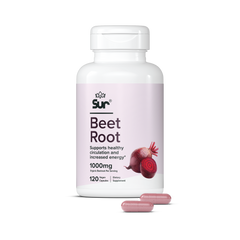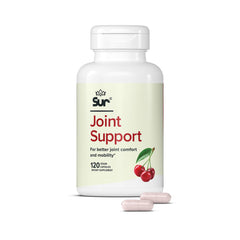Cardiovascular disease is the leading cause of death in the US, and as such, there is a massive enterprise around drugs and treatments for it. One of the most popular of these are statins, drugs designed to lower cholesterol.
Alternative treatments to statins exist, however, including diet, lifestyle changes, and supplements. Whether the best solution for you is to adjust your intake of fats or use Nutrim for cholesterol management, there are options you can explore before you get prescribed a pill.
How Cholesterol Works
To understand statins, it’s important to understand how cholesterol works. Cholesterol is a necessary part of the functioning of the body. Issues arise, however, when the levels are wrong in either of two ways.
To put it simply, there are two kinds of cholesterol: high-density lipoproteins (HDL) and low-density lipoproteins (LDL). LDL is commonly understood by many people as ‘bad’ cholesterol because it can cause damage and block arteries when there’s excess amounts of it in the body.
HDL collects extra LDL and returns it to the liver (where cholesterol is made) so that it can be broken down. When your HDL levels are low or your LDL levels are so high your body can’t keep up, you’re at risk of heart disease and increased risk of heart attack and stroke.
What Are Statins?
Statins are designed to adjust cholesterol levels in both ways. They can reduce the liver’s production of LDL, giving it a chance to process extra LDL, and they can increase the amount of HDL in your body.
Use of statins is incredibly widespread, and in the ten years between 2009 and 2019, use increased almost 200%. Currently, around 30% of people over forty in the US take a statin.
Why Should You Avoid Statins?
Concerns over cholesterol medication aren’t new, but new studies show statins might be overused. Currently, almost fifty million adults in the US are recommended statins, and that could change.
The American Heart Association recently adjusted its recommendation of statin as the risk of heart disease has been found to be less than previously thought for some age groups. To avoid statins, it’s a good idea to find ways to lower cholesterol without medication.
How Lifestyle Changes Affect Cholesterol
Incremental changes in your habits can have long-term effects on your cholesterol levels. Here are some starting points to set you on the right path:
Exercise More
Moderate physical activity can increase levels of HDL, meaning your body can more efficiently clear out excess cholesterol. Taking a short walk or bike ride every day goes a long way to improving cholesterol levels. Excess weight also poses risks to heart health, so it can also be beneficial if you end up exercising enough to shed a couple pounds.
Quit Smoking
Smoking is bad for your heart and blood vessels, making high cholesterol that much more deadly. Nicotine also increases LDL and lowers HDL levels. Quitting is a step in the right direction–within just a year of quitting, your risk of heart attack drops significantly.
Reduce Alcohol Intake
The liver is the center of cholesterol production and distribution, so the healthier your liver is, the better your body will be at managing LDL and HDL levels. Alcohol can damage your liver (as well as your heart), so if you’re on a journey to reduce your cholesterol levels without medication, avoid excess drinking.
Get More Sleep
Chronic poor sleep can harm your cholesterol levels, so getting a good night’s rest as often as you can is a great, natural way to help your body.
Improve Your Diet
In addition to lifestyle habits, what you eat is an integral part of getting your cholesterol under control without using statins.
Reduce the amount of trans and saturated fats you consume. The same goes for refined sugars and refined carbohydrates. Processed food, red meat, and cheese and cream should be consumed conscientiously.
Focus on fiber and omega-3s. The easiest places to get these are oats, legumes, beans, fruits and vegetables, nuts and seeds, and fish. You can also increase your fiber intake with supplements like Nutrim oat bran powder and psyllium husk.
Alternative Solutions
Statins are powerful drugs and they can help people who need them, so make sure you consult with your doctor if they might be right for you. That said, there are a lot of natural options for people looking to control their cholesterol levels without taking on a new prescription.



